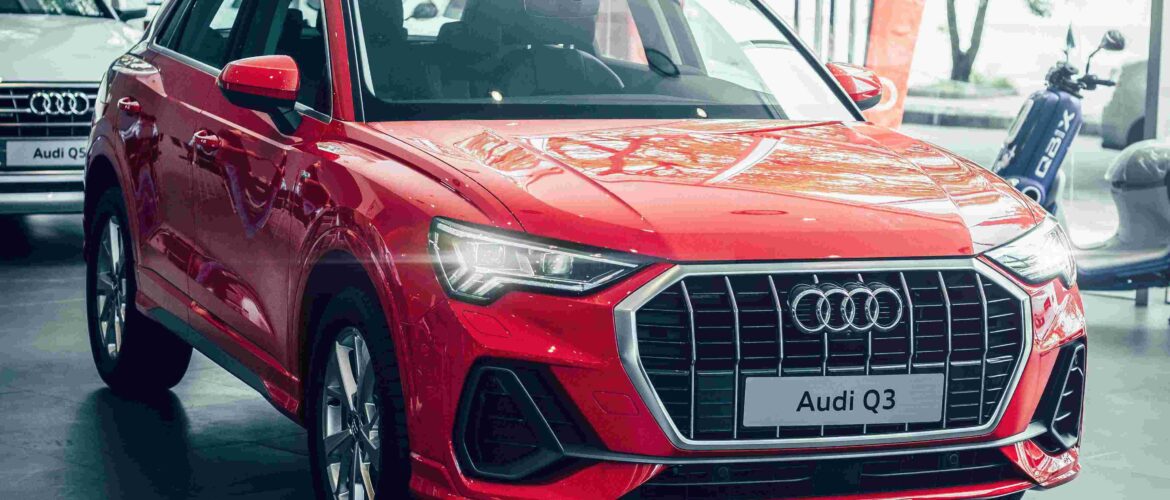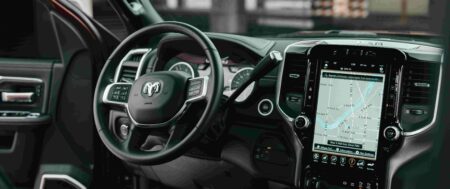SUV Vehicle Financing: Drive Home Your Sporty Dream Car
SUV vehicle financing is a financial arrangement specifically tailored for individuals who want to purchase sport utility vehicles. This financing option allows prospective buyers to acquire an SUV through a structured payment plan, commonly offered by banks, credit unions, or automotive financing institutions.
The terms of SUV financing include considerations for the vehicle’s cost, interest rates, and the duration of the repayment period. Whether through traditional loans, lease agreements, or other financing options, SUV vehicle financing provides you with the flexibility to make manageable payments while enjoying the benefits of owning a versatile and popular vehicle type like an SUV.
Significance of SUVs in today’s automotive market
SUVs hold paramount importance in the automotive market due to their versatile appeal and consumer demand. Their popularity stems from a combination of spacious interiors, elevated driving positions, and robust designs, catering to a diverse range of lifestyles. SUVs offer families ample space, adventure enthusiasts robust off-road capabilities, and urban commuters a sense of security like luxury vehicles.
This broad versatility has led to a surge in electric car sales globally and influenced automakers to expand their small SUV lineups. Additionally, the perceived safety and comfort associated with SUVs contribute significantly to their prominence, making them a dominant and influential segment in the automotive industry.

Why Choose an SUV: Benefits and Popularity
The appeal of SUVs, especially electric cars, lies in their versatility, spacious interiors, elevated driving position, off-road capabilities, safety features, towing capacity, all-weather performance, resale value, stylish design, and, in some cases, status and prestige. These factors collectively make SUVs a popular and compelling choice for a wide range of consumers with diverse preferences and needs.
1. Versatility
SUVs, or sport utility vehicles, are renowned for their versatility. Their design allows for a variety of uses, thus making them suitable for families, outdoor enthusiasts, and urban commuters alike. The adaptable nature of SUVs for all-wheel drive makes them an attractive choice for those seeking a vehicle that can effortlessly transition between different lifestyles and activities.
2. Spacious Interiors
One of the key benefits of SUVs is their spacious and plush interiors. With ample legroom, headroom, and cargo space, SUVs provide a comfortable and spacious environment for both drivers and passengers. This makes them an ideal choice for families with children, road trips, or individuals who value a roomy and comfortable ride.
3. Elevated Driving Position
SUVs typically feature an elevated driving position, providing drivers with better visibility of the road ahead. This enhanced viewpoint contributes to a sense of control and safety, making SUVs a preferred choice for those who appreciate a commanding driving experience.
4. Off-Road Capabilities
Best SUV models are equipped with off-road capabilities, thus making them suitable for adventurous journeys. Whether it’s navigating rough terrains, tackling snow-covered roads, or venturing off the beaten path, SUVs often come with features like all-wheel drive or four-wheel drive that enhance their performance in diverse and challenging conditions.
5. Safety Features
SUVs often prioritize safety features, and attract consumers who prioritize security on the road. The robust build of SUVs, combined with advanced safety technologies such as collision avoidance systems, lane departure warnings, and multiple airbags, contributes to an overall sense of safety for both drivers and passengers.
6. Towing Capacity
Many SUVs have substantial towing capacities, making them suitable for hauling trailers, boats, or other recreational vehicles. This feature expands the practicality of SUVs, appealing to individuals with specific towing needs for work or leisure activities.
7. All-Weather Performance
The elevated ground clearance and advanced drivetrain systems in SUVs contribute to their all-weather performance. Whether facing rain, snow, or challenging road conditions, SUVs are designed to provide stability and traction, enhancing the driver’s confidence and control in various weather scenarios.
8. Resale Value
SUVs often retain their resale value well, making them a smart investment for buyers. The endured demand for midsize SUVs in the used car market is driven by their popularity and the perception of reliability and contributes to a potentially higher resale value compared to other vehicle types.
9. Stylish Design
SUVs come in various styles and designs, from sleek and compact models to larger, more rugged options with fuel economy. The diverse aesthetics cater to different tastes and allows consumers to choose an SUV that aligns with their preferences and complements their lifestyle.
10. Status and Prestige
Certain luxury small SUV brands and models are associated with status and prestige. so if you own a high-end SUV, it can be a symbol of success and sophistication, and attract other consumers who value not only the practical benefits of an SUV but also the prestige associated with specific brands and models.
In short, mid-size SUV financing offers several benefits, therefore making it a viable option for many buyers. First, it enables individuals to spread the cost of the SUV over a manageable period and reduce the immediate financial burden. Additionally, financing provides the opportunity to drive a higher-end SUV with a lower initial cash outlay.
Competitive interest rates and promotions from manufacturers or lenders can further enhance the overall affordability. Moreover, timely payments on an SUV loan can positively impact one’s credit score. Overall, SUV financing facilitates the acquisition of a desired vehicle while allowing for reasonable budget flexibility and potential financial perks.
Call Now For Pre-Qualification Info
Advantages of owning an SUV (e.g., space, safety, versatility).
No doubt, possession of the best SUVs provides significant safety advantages with a robust build, advanced safety features, and elevated visibility. The spacious interiors offer ample room for passengers and cargo, enhancing the comfort of families or long journeys.
Moreover, midsize SUVs like the Chevrolet Suburban model come with a versatile design that allows for diverse uses, from the accommodation of adventure gear to providing a secure and comfortable environment for daily commuting. Their all-encompassing benefits make SUVs a preferred choice for those prioritizing safety, who reqAdvantages of owning an SUV (e.g., space, safety, versatility).
uire ample space, and who seek a versatile vehicle that adapts seamlessly to various lifestyles and activities

Local SUV Dealerships: Your Source for Quality
Local SUV dealerships play a pivotal role in ensuring quality for customers who are in search of a Sport Utility Vehicle (SUV) with modern tech. Local SUV dealerships serve as a reliable source of quality by leveraging their expertise, conducting comprehensive inspections, providing test drive opportunities, offering warranty and after-sales service, featuring certified pre-owned options, and building a positive reputation through personalized customer service. These factors collectively contribute to a trustworthy and quality-driven environment for individuals seeking to purchase an SUV.
1. Expertise and Knowledge:
Local dealerships often employ knowledgeable staff with expertise in SUV models with off-road capability. Their aim of different makes and models enables them to guide customers effectively, matched with individual preferences and requirements to the most suitable SUV options.
2. Comprehensive Inspections:
Reputable local dealerships conduct thorough inspections and maintenance on their SUV inventory. This ensures that vehicles meet quality standards before reaching the showroom floor, addresses any potential issues and provides customers with reliable and well-maintained options.
3. Test Drive Opportunities:
Local dealerships offer the opportunity for customers to experience the SUV firsthand through test drives. This hands-on experience allows potential buyers to evaluate the vehicle’s performance, comfort, and features, contributing to an informed decision.
4. Warranty and After-Sales Service:
Many local dealerships provide warranties and after-sales service, instilling confidence in the quality of the SUVs they sell. This commitment to customer satisfaction extends beyond the initial purchase, offering support for any potential issues that may arise post-sale.
5. Access to Certified Pre-Owned SUVs:
Local dealerships often feature certified pre-owned SUVs in their inventory. These vehicles undergo rigorous inspections and meet manufacturer-set criteria for quality and reliability. So if you choose a certified pre-owned SUV from a local dealership, it provides a level of assurance in the vehicle’s condition and performance.
6. Customer Reviews and Reputation:
The reputation of local SUV dealerships, especially Range Rover and Volkswagen tiguan, is often built on positive customer experiences. So you should check customer reviews and testimonials, as these can offer insights into the dealership’s commitment to quality, customer service, and the reliability of the SUVs they sell.
7. Personalized Customer Service:
Local dealerships prioritize personalized customer service, takes the time to understand individual needs and preferences. This one-on-one approach contributes to a tailored buying experience, and ensures customers find an SUV that aligns with their specific requirements.
Types of SUVs: Finding Your Perfect Fit
Each type of SUV, like the Chevrolet Trailblazer, caters to specific preferences, lifestyles, and needs and provides a diverse range of options for consumers with varying requirements. The choice among these types depends on factors such as family size, driving habits, desired features, and individual preferences.
1. Compact SUVs:
Compact SUVs like the Ford Explorer are smaller in size and offer a balance between fuel efficiency and versatility. They are well-suited for urban environments and provide a comfortable driving experience with ample cargo space and seats.
2. Midsize SUVs:
Midsize SUVs strike a balance between compact and full-size models and offer more space and seats with an upscale interior than their smaller counterparts while maintaining a manageable size. They are popular with families, provide a spacious interior, and often feature advanced safety and technology features.
3. Full-size SUVs:
Full-size SUVs like trucks and Ford Explorer are known for their expansive interiors, performance, and robust towing capabilities. These vehicles often accommodate larger families and are suitable for those who want to require substantial cargo space or towing trailers or boats.
4. Luxury SUVs:
Luxury SUVs such as the Volkswagen Tiguan prioritize premium features, high-end materials, performance, and advanced technology. They offer a refined driving experience and often include the latest safety and entertainment innovations, catering to buyers seeking both performance and luxury.
5. Subcompact SUVs:
Subcompact SUVs are the smallest in the SUV category, designed for urban maneuverability and fuel efficiency. They are ideal for individuals or couples who prioritize a compact footprint without compromising on SUV features.
6. Off-road SUVs:
Off-road SUVs are built for rugged terrain, performance, and adventurous driving. Equipped with features like four-wheel drive, enhanced suspension systems, and durable construction, these vehicles excel in challenging environments for off-road enthusiasts.
7. Crossover SUVs:
Crossover SUVs are built on a car platform, and combine the features of an SUV with the drivability of a car. They often prioritize fuel efficiency and are designed for individuals who seek a versatile and nimble vehicle for daily commuting and occasional off-road use.
Call Now For Pre-Qualification Info
SUV Financing Options: What You Need to Know
If you want to opt for the right financing option is integral to making the SUV ownership experience enjoyable and affordable. So prospective buyers should assess their financial situation, research available options, and secure the most advantageous terms for their SUV purchase.
Traditional Auto Loans
Traditional auto loans are a common financing option for SUV buyers. Individuals secure a loan from a bank, credit union, or financial institution and then repay the borrowed amount along with interest in fixed monthly installments over a specified term.
Dealership Financing
Many SUV buyers opt for dealership financing, where the dealership acts as an intermediary between the buyer and a lending institution. While it’s convenient and crucial to compare interest rates and terms to ensure competitive financing rates.
Lease Financing
Leasing an SUV involves making installments and monthly payments to use the vehicle for a specified period. At the end of the lease term, buyers may have the option to purchase the SUV or lease a new one. Leasing often offers lower monthly payments but may have mileage restrictions.
Manufacturer Financing Programs
Manufacturers often provide special financing programs in respect of pricing, like low-interest rates or cashback incentives. These programs may be available through the manufacturer’s financing arm, providing buyers with attractive terms to finance their SUV purchase.
Credit Union Financing
Credit unions offer financing options for their members, often with competitive interest rates. Joining a credit union may provide SUV buyers with access to favorable loan terms and personalized service.
Online Lenders
Online lenders specialize in providing quick and convenient financing solutions. so you easily make comparison shopping among different online lenders can help secure the best terms for SUV financing.
Credit Scores and SUV Financing Eligibility
The eligibility criteria to obtain financing for an SUV often hinge on the applicant’s credit score. Lenders generally categorize credit scores into different ranges to assess an individual’s creditworthiness. A credit score above 700 is considered excellent, and applicants in this range typically qualify for lower interest rates and favorable financing terms.
The score between 650 and 700 is considered good, offering reasonable financing options. However, scores below 650 may face challenges with higher interest rates and stricter terms. Lenders also consider factors like income, debt-to-income ratio, and employment stability. To secure the best SUV financing, individuals are advised to maintain a healthy credit score and financial profile.

The SUV Financing Process: Step-by-Step Access to Your Credit Score
The process of SUV financing can be relatively simple with careful planning. Initial steps involve assessing your credit score, setting a budget, and researching lenders. Pre-approval simplifies the process, providing a clear understanding of your financial capabilities.
It would be best for you to choose the right loan terms, finalize agreements, and purchase the SUV logically. While the process requires attention to detail, online resources and assistance from financial institutions make SUV financing accessible and manageable for many consumers. Overall, ease of financing depends on individual preparation and choosing the right lender with favorable terms.
Step 1 – Determine Your Budget and Credit
You should start by checking your credit score. A good credit score enhances your chances of securing favorable financing terms. so correct any inaccuracies on your credit report before proceeding. In addition, you should establish a budget for your SUV purchase. Consider factors like the down payment, monthly payments, insurance, and maintenance costs to ensure affordability.
Step 2 – Research Lenders
Next, you should explore financing options from various sources, such as banks, credit unions, online lenders, and manufacturer financing programs. Compare interest rates, loan terms, and any special promotions.
Step 3 – Pre-Approval Application and Loan Terms
Apply for pre-approval with the chosen lender. This involves the submission of the necessary financial information and documentation. Pre-approval helps you understand your borrowing capacity and streamlines the car-buying process. Further, review the loan terms, including interest rates, loan duration, and monthly payments. Ensure the terms align with your financial goals and capabilities.
Step 4 – Finalize the loan agreement and purchase the SUV
Once satisfied with the terms, finalize the loan agreement. Provide any additional documentation required by the lender. With financing secured, proceed to purchase the SUV. Complete any remaining paperwork and take possession of your new vehicle.
Tips for Negotiating SUV Financing Terms
Research rates:
You should compare interest rates from various lenders to identify competitive offers.
Know Your Credit Score:
Then understand your credit score and use it as leverage for better terms.
Pre-Approval Advantage:
In the next step, obtain pre-approval to strengthen your negotiating position and demonstrate financial readiness.
Be Flexible on Terms:
Consider adjusting the loan term to potentially secure a lower interest rate.
Explore Manufacturer Incentives:
Investigate special financing offers or incentives provided by the SUV manufacturer.
Negotiate the Purchase Price:
Negotiate the overall purchase price of the SUV before discussing financing terms.
Consider Multiple Lenders:
Don’t hesitate to get quotes from different lenders for better negotiation leverage.

Additional SUV Ownership Costs to Consider
1. Insurance:
Securing comprehensive auto insurance is essential. Costs vary based on factors like the SUV model, coverage type, and your driving history.
2. Maintenance and Repairs:
Regular maintenance, including oil changes, tire rotations, and brake inspections, is crucial. Additionally, budget for unexpected repairs that may arise over time.
3. Fuel Expenses:
SUVs often have larger engines, resulting in higher fuel consumption. Consider the vehicle’s fuel efficiency and estimate monthly fuel expenses based on your driving habits.
4. Depreciation:
SUVs experience depreciation over time. While this isn’t a direct out-of-pocket expense, it affects the vehicle’s resale value.
5. Taxes and Registration:
Factor in sales taxes, vehicle registration fees, and any other applicable taxes imposed by your local government when purchasing an SUV.
6. Financing Costs:
If financing the SUV, account for interest payments over the loan term. A longer loan tenure may result in higher overall interest costs.
7. Parking and Tolls:
Depending on your location, you may incur costs for parking permits or toll roads for all-wheel-drive. So it will be the best option for you to consider these expenses, especially if you frequently drive in urban areas.
8. Accessories and Upgrades:
Personalizing your SUV with accessories or upgrades can add to the overall cost. Budget for any modifications you plan to make.
Considering these additional costs ensures a more comprehensive financial plan for SUV ownership, helping you manage expenses effectively.
Conclusion: Your Local SUV Financing Expert
So that’s all for SUV vehicle financing! You should hire a local expert for SUV ownership, which proves a valuable option. Their knowledge of regional driving conditions, local regulations, and familiarity with the best service providers enhances the overall ownership experience. A local expert can provide personalized advice on maintenance and insurance and even recommend trusted mechanics. With their insight, navigating through the nuances of local taxes, registration processes, and potential challenges becomes more seamless. Ultimately, engaging a local expert ensures that your SUV ownership journey is not only enjoyable but also well-informed and tailored to the specific needs of your geographic location.
FAQs
What credit score is needed for SUV financing?
While a higher credit score is beneficial, some lenders offer financing options for scores above 650.
Can I negotiate the interest rate on my SUV loan?
Yes, negotiating the interest rate is possible. Shop around, leverage pre-approval, and be prepared to discuss terms with lenders.
Are there special financing deals from manufacturers?
Yes, manufacturers often offer special financing promotions, like low interest rates or cashback incentives.
Is a down payment necessary for SUV financing?
While it’s not always mandatory, a down payment can lower monthly payments and overall interest costs.
Can I refinance my SUV loan to get better terms?
Yes, refinancing allows you to adjust your loan terms and potentially secure a lower interest rate.
How does leasing differ from traditional SUV financing?
Leasing involves monthly payments for using the vehicle, with the option to buy at the end, while traditional financing leads to full ownership after completing payments.







